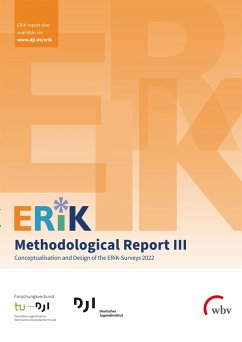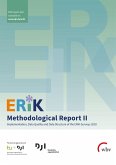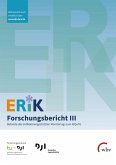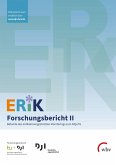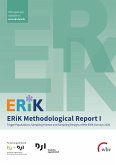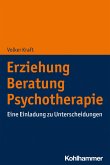The ERiK-Methodological Report III is the third in a series of methodological reports related to the 'Entwicklung von Rahmenbedingungen in der Kindertagesbetreuung -indikatorengestützte Qualitätsbeobachtung (ERiK)' study. The report focuses on the conception, sample selection, and survey designs of the ERiK-Surveys 2022. Together with the ERiK-Methodological Report I and II, that cover the ERiK Surveys 2020, it provides comprehensive background information on the ERiK-Surveys conducted in 2022 and describes their progression until December 31, 2021. The subsequent steps, such as implementing the ERiK-Surveys 2022, will be described in a later report.
Dieser Download kann aus rechtlichen Gründen nur mit Rechnungsadresse in A, B, BG, CY, CZ, D, DK, EW, E, FIN, F, GR, H, IRL, I, LT, L, LR, M, NL, PL, P, R, S, SLO, SK ausgeliefert werden.

